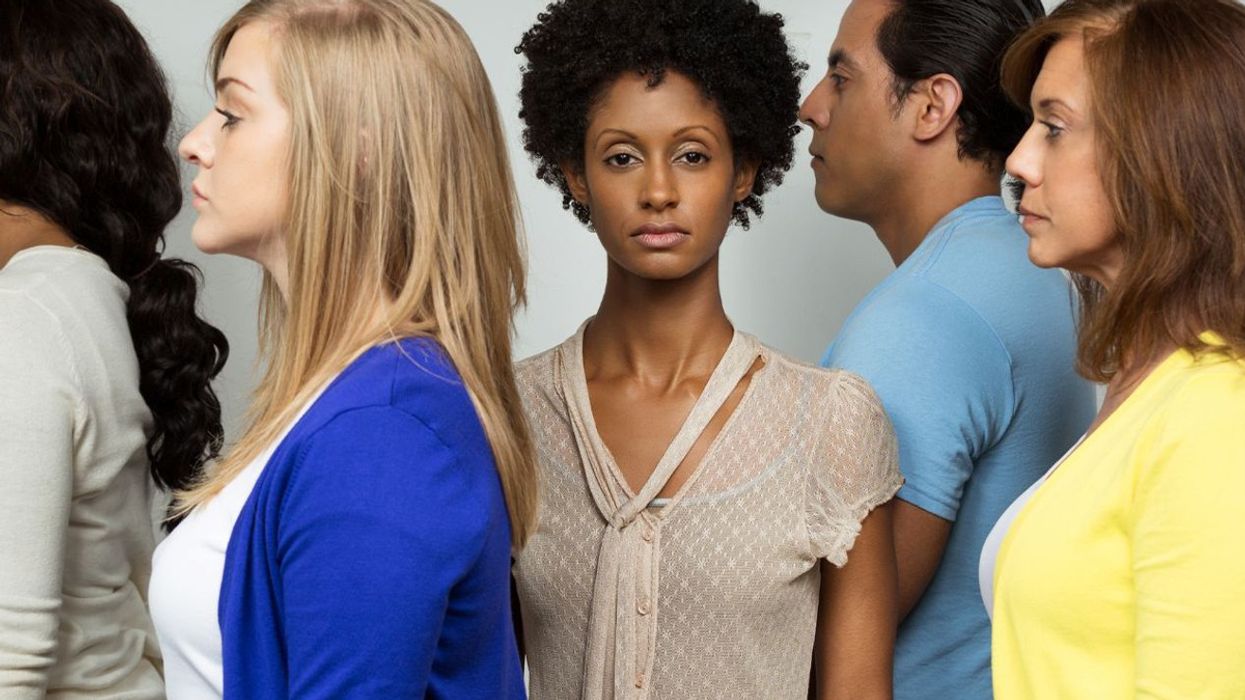It's hard enough to move to a new city. Tougher to move to a new country. But imagine moving to Buffalo, New York, after spending a decade in a refugee camp in Nepal.
You don't know anyone. You don't speak the language. You don't even have a winter coat. And you're in Buffalo. There's no one to call to help you unpack your truck, which is okay, because you don't have anything to put in a truck, if you even had a truck. Which you do not.
Refugees are different than other immigrants; refugees don't get to plan their trips. By definition, they've fled their old lives. They've left behind homes, communities, and careers—all with the hope that they'll somehow find a safe place to live and begin again.
Last year, more than 1,300 international refugees from Burma, Bhutan, and Iraq, moved to Buffalo. The international resettlement agencies place refugees in cities where the cost of living is low—cities like Buffalo, where housing is cheap because residents have left and the market has gone down. The number is not unusual for Buffalo, which over the last 10 years brought in more than 8,000 refugees, but it is a growing number, and those numbers are leading to new communities and new opportunities. Buffalo, like a lot of rust belt cities, needs help, and its newest residents could become a profound resource toward revitalization.
One of the harsh realities of the federal resettlement policy is that most refugees are resettled into poverty. Funding for resettlement makes up less than one percent of the overall federal budget, and each family receives a only a modest amount upon arrival to get their lives started in the U.S. Refugee families also receive welfare assistance during their resettlement period, but that can last less than a year, and some argue that the money isn't enough to break a cycle of dependence that begins in refugee camps.
It's a bad start for the refugees and for the organizations that are supposed to help transition them into independence. Refugees, like the waves of immigrants before them, often find themselves working unskilled jobs in factories, processing plants, hotels, and restaurants. It's not a sector where the wages are good, and yet refugees are often pushed into these jobs because they don't speak English well, or because the skills they acquired in their home country go unrecognized.
It's tough for anyone to make a living on a minimum wage job. And often, even when there's work, refugees have a hard time getting enough hours to support themselves and their families. So despite the tireless efforts of resettlement workers, many refugees remain dependent on the welfare system long after their resettlement period.
I spent three years working at a resettlement agency in Buffalo. We were a nonprofit institution, and most of our funding came from the federal government and grants. We worked harder than our pay grade, like most people who work for nonprofits. And we worked to make miracles happen with the scarce resources available.
My colleagues and I worked every day—and on our off days—devising ways to squeeze every resource, to find donations for new families, to connect refugees to people who could do what we could not. But no matter how hard we worked, we'd end up with the same clients again and again, helping the same refugee after he was laid off from his temp job for the fourth time in a year. During the employment program intake interview, you ask a refugee his or her dreams and goals. Then you tell him or her that job isn’t available.
Resettlement workers can't work any harder, so how can we work smarter? How can we innovate to improve the quality of life for refugees, to provide economic independence and alleviate pressure on resettlement agencies? Refugees are people from all walks of life: laborers and masons, artists and craftspeople, journalists, doctors, engineers, teachers, and business owners. It is an educated, skilled population with the motivation to succeed. We need to start understanding that this population is a resource, not a drag on resources.
Buffalo's new immigrant populations can contribute to the city's revitalization, and they can do it by starting businesses. This is already happening. Refugee entrepreneurs are already opening restaurants, retail shops, and grocery stores. A favorite example in Buffalo is West Side Value Laundromat, a business started by Zaw Win, a Burmese refugee. In addition to being a laundromat, it is now also community center with a small art studio space in front.
For the last four years, organizations like the Westminster Economic Development Initiative (WEDI) and its partners are helping guide refugee entrepreneurs through the process of starting a business in the U.S. WEDI's business incubator marketplace, the West Side Bazaar, boasts a large number of refugee-run businesses. The West Side Bazaar played a big role in attracting attention and increasing foot traffic to Grant Street, one of the main streets on Buffalo's West Side, a neighborhood long plagued by crime. Many refugee and immigrant entrepreneurs who started in the incubator have expanded their businesses and moved to their own storefronts, many of which were previously vacant, in neighborhoods across the city.
In the field of social innovation, we look to those who seem to be succeeding where the majority of their peers are not—the social deviants—to show us the key behaviors, resources, and leverage points that make them successful. In the case of economic dependence among refugees in Buffalo, we should be looking at the social deviants as well as at organizations like WEDI in order understand what works best, not in theory but in practice.
At SVA's Design for Social Innovation program, I have begun a new project designing a program that can supplement the work of resettlement agencies and organizations like WEDI. There are complex systems at play and, by mapping the relationships within them, leverage points are emerging. By talking to the social deviants in the community, I'm discovering what sets them apart. By engaging the larger refugee communities, I'm finding what they identify as barriers to economic independence. By collaborating with other organizations in Buffalo doing great work, I'm finding ways to overcome those barriers.
We can develop a new approach to economic independence for our new neighbors, one that can help refugees break out of the systemic poverty and the grips of learned helplessness. One that expands on the great work being done by organizations like WEDI. One that harnesses the skills and social capital brought to Buffalo by refugees. And in a city that has suffered from a lack of jobs for decades, what better way to find employment than to create it.
Image by chiakto / Shutterstock.com
















 Otis knew before they did.
Otis knew before they did.